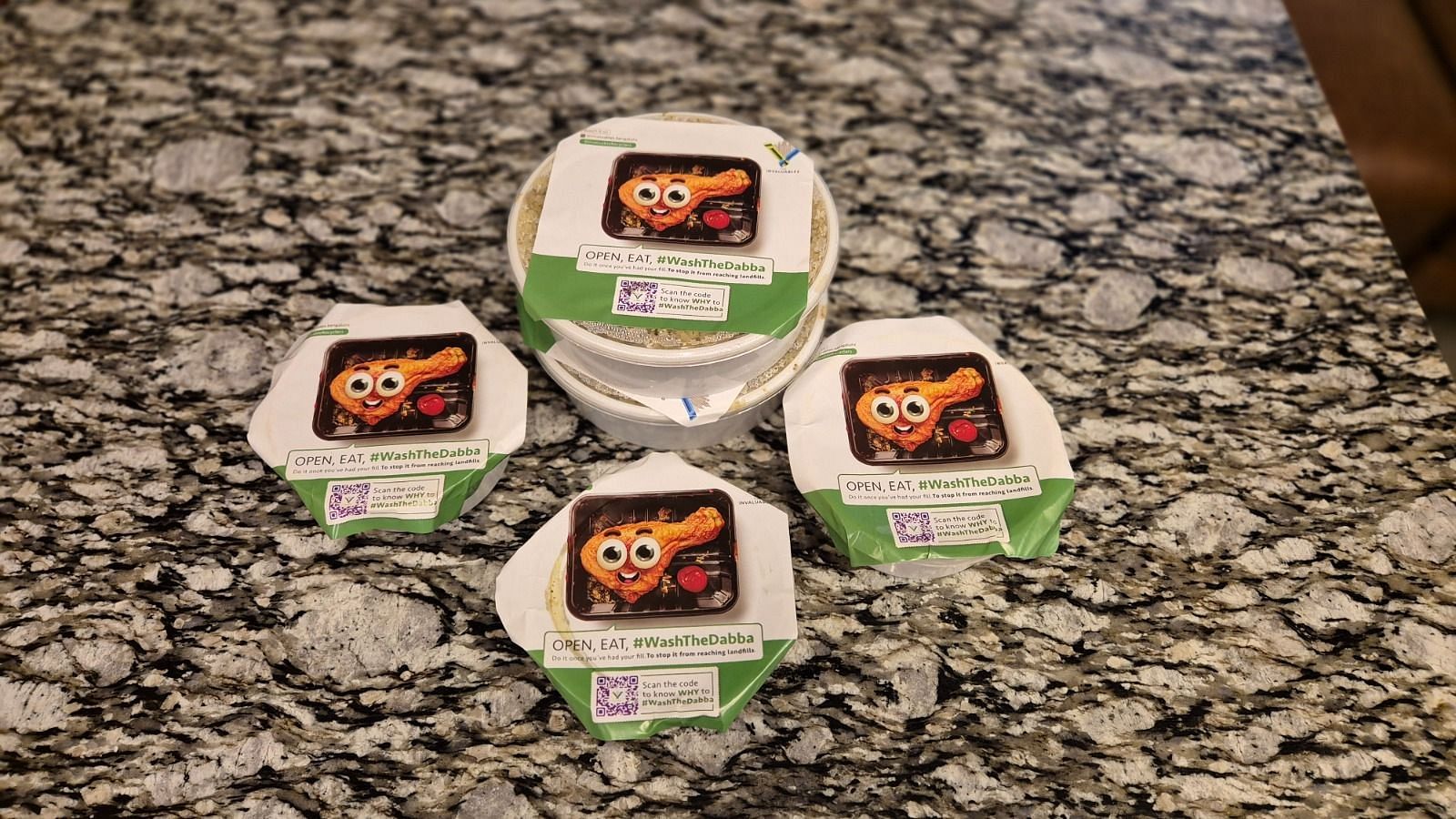
Credit: DH Photo
A social media campaign urging citizens to wash takeaway boxes before discarding them has found support from food businesses in the city. A platform that delivers home-style meals and 35 other restaurants have started printing the appeal on their food orders.
Called #WashTheDabba, the campaign aims to bring dignity to the job of waste pickers as well as improve the recycling chances of these plastic containers. It is an initiative by Saamuhika Shakti, a consortium of organisations working to improve the lives of informal waste pickers in Bengaluru. They have dispatched 1.36 lakh stickers with the message ‘Open, Eat, #WashTheDabba’ to the said food businesses.
The campaign was launched through a reel on Instagram early September. It features three informal waste pickers at the Dry Waste Collection Centre (DWCC) in Mahalakshmi Layout. They can be seen opening discarded takeout boxes, revealing leftover gravy, noodles and biscuits, and used chips packets and tomato ketchup sachets.
Hasiru Dala, a city-based NGO, is part of the consortium. Its cofounder, Nalini Shekar, explains why it is important to wash takeaway boxes after use. Starting with the health perspective, she says, “Waste pickers get exposed to rotting, smelly food and even maggots. Food waste also attracts flies.”
Secondly, it takes more water than usual to clean dried-up food residue in boxes at the recycling plant, she says. Furthermore, if boxes aren’t closed while discarding, the residual food can contaminate other dry waste in the mix and reduce their recyclability. It can stain paper and make it oily, for instance. This can impact the livelihood of waste pickers. Mansoor Gous, who manages two DWCCs in Pattabhirama Nagar and Byrasandra, says, “If dry waste is not of good quality, recycling vendors don’t buy them.” About 350 kg of dry waste coming to these centres is “rejected” daily.
The campaign is the result of research on how to better the lives of waste pickers. Its creative director Soma Katiyar says, “Bengaluru has 22,500 informal waste pickers and they prevent 3.8 lakh tonnes of dry waste from going to landfills every year. We learned that leftover food in boxes was making their work difficult.”